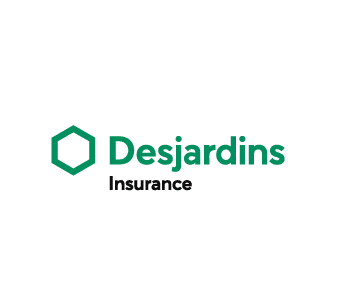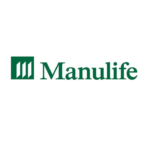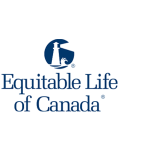Participating Whole Life Insurance
A Participating Whole Life Insurance policy can last for your whole life and also help you build wealth and achieve financial goals

Table of Contents
QUICK PAY PARTICIPATING WHOLE LIFE INSURANCE
Parents and Grandparents:
The 5-year payment option allows you to pay off all the premiums before gifting the policy to your grandchildren at the age of majority.
5 Year Pay:
This product is an excellent solution for increasing RESP income and ensuring grandchildren’s financial future without passing on the burden of premiums.
Coverage Limits:
• Minimum: $10,000
• Maximum: $10,000,000
What Is Whole Life Insurance?
Whole life insurance is a type of permanent life insurance that pays a tax-free death benefit to your beneficiaries when you die, as long as you pay the required premiums. Unlike term life insurance, which only covers you for a specific period of time, whole life insurance does not expire and remains in force until your death.
Whole life insurance also has a cash value component that accumulates over time and can be accessed while you are alive through loans, withdrawals or surrendering the policy. The cash value is part of the premium payments that you make for the policy, and it earns interest at a guaranteed rate set by the insurance company. You may also receive dividends from the insurance company, which are not guaranteed but can be used to increase your cash value or reduce your premiums. The cash value also increases the death benefit.
Whole life insurance offers three kinds of guarantees:
Guaranteed cash values make participating whole life insurance a safe and tax-advantaged way to leave a legacy for your family. The added bonus of earning dividends that aren’t affected by market volatility, halps increase the cash value.
Types of Whole Life Insurance
Participating vs. Non-Participating Whole Life
- With a participating whole life insurance policy you are eligible to receive life insurance dividends from the insurer each year, which are essentially a refund of excess premiums paid by policyholders. Dividends are not guaranteed, but many life insurance companies are known for paying consistent dividends year after year. You can take the dividends in cash, use them to pay premiums, or use them to increase the face amount of your policy.
- With a non-participating policy you won’t get any dividends.
How Does Whole Life Insurance Work?
When you buy a whole life insurance policy, you choose the amount of coverage that suits your needs, the number of years you’ll want to pay the premiums, and if you want to overfund the policy with the Additional Deposit Option (ADO). You also pay a fixed premium that will not change over time, unless you add more deposits into the policy. Part of your premium goes to the insurance company to pay for the death benefit, and part of it goes to the cash value account, which earns interest at a guaranteed rate. You can also receive dividends from the insurance company, which are not guaranteed but can be used to enhance your policy or lower your costs.
To qualify for the policy, you will have to pass medical and financial underwriting. The premium will depend on your health rating. Every insurer has different underwriting requirements.
The death benefit is the amount of money that your beneficiaries will receive when you die. It is usually tax-free and can be used for any purpose, such as paying off debts, covering funeral expenses, or providing income for your family.
Cash Value Accumulation in Whole Life Insurance
The cash value is the amount of money that accumulates in your policy over time through dividends. It is tax-deferred, meaning you do not pay taxes on the growth until you access it. You can access the cash value for various purposes, such as paying for education, retirement or emergencies. Accessing the cash value will reduce the death benefit and may incur taxes and fees. However, if you do a collateral loan against the policy, you will be able to access the cash value tax-free…this strategy is called the Infinite Banking Concept.
Most policies will take years to have a significant growth in the cash value, but there is a method to overfund the policy and have almost instant access to the cash value. Any outstanding loans will be deducted from the death benefit when you pass away.
How Much Does Whole Life Insurance Cost?
- Age and gender
- Height and weight
- Past and current health conditions
- The health history of your parents and siblings
- Nicotine and marijuana use, including nicotine patches and gum
- Substance abuse
- Credit
- Criminal history
- Driving record (especially DUI convictions and moving violations, such as speeding tickets)
- Dangerous hobbies and activities (such as piloting planes or rock climbing)
- Payment period: You can choose to pay for the entire policy in a short time frame, such as 10 or 20 years. The premium would rise substantially given the front loading of payments.
- Guaranteed return rate: Some companies offer a higher guaranteed return, which can result in higher annual premiums.
- Dividend crediting: Many whole life policies pay out a dividend, and policyholders can choose how to receive it. Receiving your dividend payments as a credit toward premiums reduces your annual out-of-pocket cost.
Compare Life Insurance Companies
A Whole Life Insurance Example
Extended Term Life Insurance
1035 Exchange
Is Whole Life Insurance Worth It?
- Provides lifelong coverage: As long as you keep up with premium payments, you’ll have peace of mind knowing that your beneficiaries will receive a life insurance payout.
- Dividends usually paid to you: Most whole life insurance policies have the potential to get annual dividends paid by the insurer.
- Cash value builds: A whole life insurance policy can accumulate a good amount of cash value over time. You can take advantage of the cash value through policy loans and/or withdrawals.
- Funding a trust: Permanent life insurance like whole life can be used to fund a trust that will support children after you die.
- Paying estate taxes: For those with estates larger than the current estate tax exemption, which is $12.92 million for an individual ($25.84 million per married couple) in 2023, permanent life insurance can make sense to help heirs pay estate taxes after you pass away. Some states have lower estate tax limits, so it may make sense for folks living in those states as well.
- Funding a buy-sell agreement: If you’re an owner of a business with a partner, you might need permanent life insurance to fund the purchase of each other’s shares in the business at death. Whole life insurance is one option for a buy-sell agreement.
- Expensive: Whole life insurance policy tends to be an expensive way to buy coverage. Depending on your priorities, a different type of life insurance might be better. For example, if your main goal is to provide a death benefit to beneficiaries and you don’t care much about cash value, guaranteed universal life insurance can be a more cost-effective choice.
- Inflexible: You won’t have the ability to make adjustments to your premium payments and death benefit, which you would have with a universal life insurance policy.
- No benefit from good stock market years: The fixed-rate growth of cash value is something you might appreciate about a whole life insurance policy, but you’ll also be missing out on potential investment gains. The guaranteed cash value growth could be only 2% or 3%. Make sure to look at the policy illustration to see the projections of guaranteed cash value over time.










